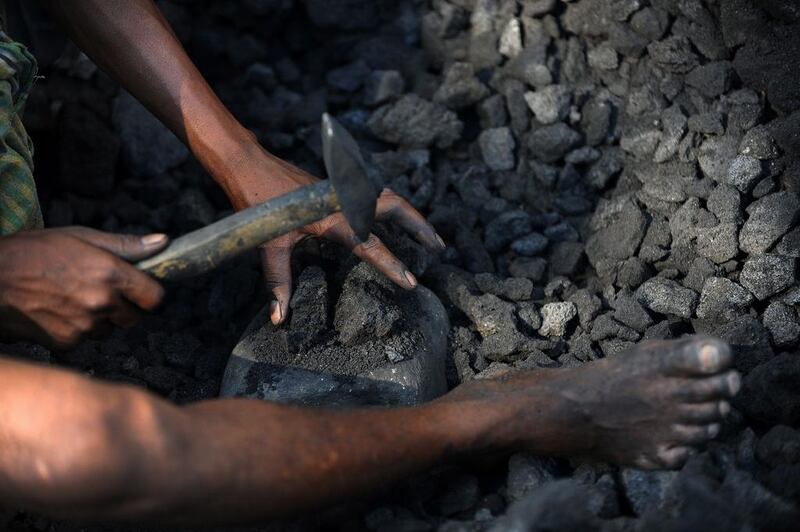Rebecca Bundhun, foreign correspondent
Mumbai // India’s supreme court yesterday cancelled more than 200 coal blocks which were ruled illegal. The move is expected to negatively impact companies that held the coal fields for use in their activities such as production of metal. It could also fuel widespread concerns over coal shortages in India.
“Across the board cancellation is something that has caught all of us by surprise,” said Asheet Pasricha, the president of the Association of Indian Forging Industry. “I kind of just expected the supreme court to come down heavily on the cancellation of blocks where no activity had started. Not only the availability of power, but metal companies who had been allotted these coal blocks – each one of them will be affected on their production volumes as well as costs. Metals come into every aspect of our lives.”
The move to cancel 214 of the 218 permits follows the supreme court decision last month to declare the allocation of the 218 coal blocks awarded since 1993 as illegal in what it described as an “unfair distribution of the national wealth”.
An auditor’s report in 2012 alleged the country lost out on more than US$33 billion because the permits were awarded to companies without an auction process.
The supreme court yesterday cancelled all but four of these coal blocks. This cancellation will come into effect in six months.
State-controlled Coal India produces more than 80 per cent of the coal mined domestically and there are expectations that it will manage the blocks until they are re-auctioned. Coal India’s shares were up 5 per cent yesterday following the court’s decision.
Shares in a number of power, steel and aluminium companies fell, however. Banks with exposure could also be impacted.
Metal companies Jindal Steel and Power and Hindalco Industries were among the firms that used coal from their own mines for projects. Jindal Steel’s shares closed down about 10 per cent yesterday.
Coal is India’s primary source of power, generating about 60 per cent of its electricity.
Many parts of India are regularly affected by blackouts and there have been heightened concerns recently about low coal supplies in the country.
India ends up importing a large amount of coal at considerable cost – despite the fact that it has the world’s fifth largest coal reserves – because of challenges including inefficiency, which hold back the supply of its domestic resources.
Others welcomed the move, which is seen by some as a fresh start for the sector.
“We are glad that this is over with the supreme court verdict on coal blocks allocation,” said Arundhati Bhattacharya, the chairperson of the State Bank of India. “We now look forward for a quick plan of action for ensuring that coal supplies are not disrupted and thereafter a swift and transparent bidding process for reallocation.”
business@thenational.ae
Follow The National's Business section on Twitter





